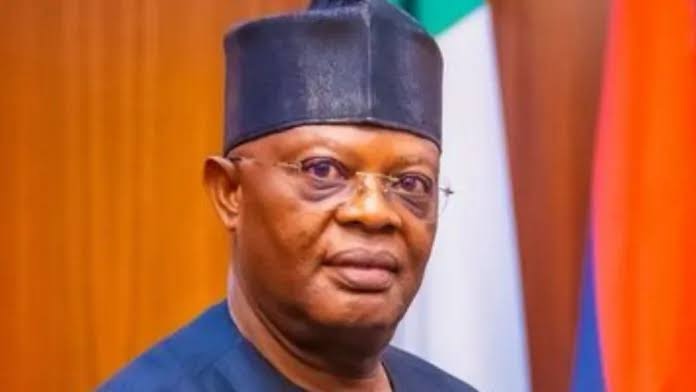…through agric commercialization, export-led industrialization
The candidate of the African Democratic Congress (ADC) in the September 21 governorship election in Edo State, Osarenren Derek Izedonmwen, has said he would focus on the commercialization of agriculture and export-led industrialization if elected governor.
The ADC gubernatorial candidate unveiled his robust agenda centred on Agriculture, Industrialization, Infrastructure, and Security in a recent interview with The Nigerian Observer in Benin City, the Edo State capital, saying this visionary approach would harness the state’s agricultural potential and transform it into a powerhouse of economic growth and job creation.
“In Nigeria today, we face a grave economic imbalance driven by a structural trade deficit, rooted in our reliance on imported food, energy—specifically refined petroleum products—and manufactured goods. This reliance not only depreciates our naira but also forces us into a cycle of subsidies and high-interest rates, increasing our national debt and stifling local economic growth. Recent policies from the federal government have only worsened these challenges, pushing more Nigerians into poverty. It is high time we broke this vicious cycle,” Izedonmwen stated.
To drive his agricultural agenda, Izedonmwen plans to set up policy banks in Edo State.
“First of all, I will set up policy banks specifically to advance more affordable long-term credit (loans) to farmers and entrepreneurs in support of agriculture, agro-allied industries, and proto-industrial industries. This is where we need to invest to create value that we can export and bring forex into the state,” he said.
Edo State, blessed with fertile land and favourable climatic conditions, has long been a hub for agricultural activities. However, the full potential of this sector has yet to be realized. Izedonmwen’s focus on the commercialization of agriculture aims to bridge this gap by implementing strategic policies and initiatives that will elevate the agricultural sector.
“Our vision for agriculture in Edo State encompasses two broad approaches: rapidly improving the agricultural productivity of family-based farms through affordable credit, technology, modern farming methods, and targeted government incentives designed to de-risk farming; and transforming agricultural produce into value-added products. By processing our cash crops—such as palm oil, rubber, cocoa, and cashew nuts—and food crops like rice, cassava, plantain, and grains into highly sought-after products such as high-standard flours, industrial starch, ethanol, sorbitol, chocolate, refined vegetable oils, and animal feeds, we can create a sustainable agro-based economy that feeds into our industrial sector,” he said.
Izedonmwen emphasized that investment in infrastructure is key to supporting both agriculture and industrialization. Improving roads, power, water supply, and other utilities not only enhances the quality of life for the people but also attracts investments that fuel further industrial activities. His Infrastructure Development plans include enhancing irrigation systems to ensure year-round farming, improving roads and transport links to facilitate the movement of goods, and continuing the development of the Benin River Port.
He noted that despite the current economic hardship, Edo State’s focus on production for export can rejuvenate the local economy.
“By targeting export markets, we can generate revenue that can be reinvested into our local industries, fostering a sustainable cycle of growth and development. Given the importance of this export market to our long-term economic growth, we will prioritize government-led market creation, especially outside Nigeria. We will introduce advanced farming equipment and technology to boost productivity and efficiency,” the ADC guber candidate said.
“Another key initiative is implementing certification programs to ensure our produce and value-added products meet international quality standards. We will establish inspection units to monitor and regulate the quality of agricultural exports and form partnerships with international markets to secure stable and lucrative outlets for Edo’s agricultural products. Additionally, we will create centres to assist farmers with the logistics, documentation, and procedures involved in exporting their products,” he said.


